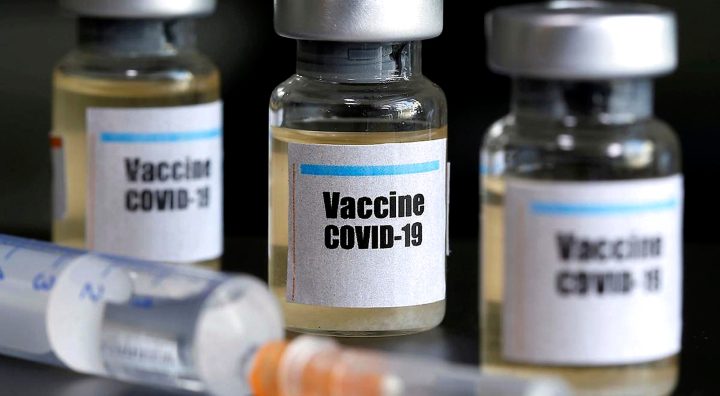MAVERICK CITIZEN OP-ED
Covid-19 can accelerate progress towards improved health outcomes

Can South Africa make a silk purse out of a sow’s ear? We can use this pandemic to our advantage in ways that improve the health of South Africans.
Even without SARS Covid-19, South Africa is undeniably a very sick nation.
We have the largest number of people living with HIV — more than 7.6 million, we are in the top 10 countries with large numbers of people with tuberculosis — an estimated 400,000 new TB infections every year, many children under five years are stunted (27%) and 13% are overweight; 46% of women and 44% of men are hypertensive; 13% of women and 8% of men are diabetic with a staggering 64% of women and 66% of men being classified as prediabetic according to the South African Demographic and Health Survey conducted in 2016 and reported on in 2019.
While the HIV epidemic highlighted the importance of preventing the spread of HIV and treating those infected, SARS Covid-19 has also highlighted the importance of non-communicable diseases such as diabetes, hypertension and cardiovascular diseases. It has raised the contribution of obesity, not only to non-communicable diseases but also to communicable diseases.
More recently, the long-term consequence of Covid-19 infection — so-called “long Covid” — has been linked to fatigue, and what patients refer to as “brain fog”. Some countries, such as the UK, have established long Covid clinics to manage the post-acute symptoms that those infected with Covid-19 present with.
While it is undeniable that the Covid pandemic adds to our woes, it can be argued that because of the spotlight on cases, hospitalisations and deaths and its impact on the global and South African economy, there has never been such a focus on health and the health system. This should cause every South African to pause and reflect on their health as well as their access to health services like never before.
So how should we start thinking about our health?
Health is a product of a number of factors, including genetics, social and economic issues. Many research studies show that people with higher levels of education, high incomes and better jobs are healthier than people who are less well educated and work in low-paying jobs.
This is usually because the former have better nutrition and better access to health services. In summary, these findings suggest that inequity is a major contributor to ill health. South Africa is an exemplar of this — the high rates of both communicable and non-communicable diseases are related to the significant inequities in our country with a Gini coefficient increasing from less than 0.6 in 1993 to close to 0.64 in 2016. Equally worrying is the concentration of income with the top 20% of the population earning 68% of income while the bottom 40% earn 7% of income.
In short, without a fast-track programme to reduce inequities in South Africa, health outcomes are unlikely to improve. There are measures that can be taken immediately, such as a basic income grant, large scale public employment programmes and elimination of corruption in all sectors of society.
Are there immediate steps that we can take to prevent diseases?
The simple answer is yes. Better housing and improved access to clean water and sanitation will improve health outcomes. In addition, greater government regulation of the food and beverage sectors to limit the use of salt and sugar, to limit advertising to children, to fast track front-of-package labelling, including calorie counts on all menus, and to decrease advertising of alcohol and limit availability are some measures that can be implemented in the short term.
Better and more innovative popular education messaging is also pivotal if we are to achieve this. In addition, we need to do more to create safer communities to enable people to walk, run and cycle safely in line with the World Health Organisation’s Healthy Cities Initiative and Sustainable Development Goal 11 — making settlements and cities inclusive, safe, resilient and sustainable.
What processes should we engage in to improve health? A call to action for a “comprehensive public health” (which will be made public next week) focuses on working with communities to develop containment and mitigation measures. It is one example of how to think about a different approach to a top-down or militaristic approach. There is much to learn from the global and local response to the HIV epidemic — illustrated by the slogan “Nothing about us, without us”.
Locally, the Treatment Action Campaign and Section27 have shown us that activism and social mobilisation gets the attention of policymakers. The Covid-19 pandemic creates space in the national psyche to leverage change to improve health and health services.
In the 1980s, under severe conditions of repression by the apartheid state, the slogan that rallied activists and working-class communities alike was “Organise or Die”. Given the continuing inequities in society, this slogan may still sadly be valid. DM/MC
Yogan Pillay is former deputy director-general in the National Department of Health, writing in his personal capacity. Anele Yawa is general secretary of the Treatment Action Campaign.
"Information pertaining to Covid-19, vaccines, how to control the spread of the virus and potential treatments is ever-changing. Under the South African Disaster Management Act Regulation 11(5)(c) it is prohibited to publish information through any medium with the intention to deceive people on government measures to address COVID-19. We are therefore disabling the comment section on this article in order to protect both the commenting member and ourselves from potential liability. Should you have additional information that you think we should know, please email [email protected]"






 Become an Insider
Become an Insider